When you find yourself sitting on the sad carpet of a Hilton at 4 AM while a fire alarm blares in your ear, you find unexpected time to contemplate your life-choices. You might wonder:
whether the crickets outside have decided to sing in harmony with the alarm or if the alarm was designed to imitate and mock crickets.
why it’s taken a fire truck over 20 minutes to get here, and whether they’ve decided to break script and not come, because we all know it’s a false alarm.
if, in the case of a real fire, your last moments are truly going to be spent staring at undecorated beige walls. At least you’ve got nice shoes on. Fire-resistant. Good for running.
In college, I studied a strange book. Didn’t love it, but haven’t forgotten it, and that’s something. It’s Søren Kierkegaard’s Either / Or. Presented via multiple narratives, each POV a separate pseudonym of Kierkegaard himself, the book juxtaposes a hedonistic life devoted to sensual pleasure against one that’s devoted to moral duty and righteousness. The Aesthetic vs. The Ethical. The first kind of life is spiritually empty, and the second kind of life is barren of all pleasure. Neither works, and Kierkegaard suggests a third way to rise above the either/or — a life of faith.
In the last year, I’ve noticed a lot of either/or thinking, in myself and in others. From feeling like I have to choose between work and writing, to hearing people talk about how guilty they feel for having needs of their own at all when they’re drowning in parenting and caring for loved ones, to being asked whether London feels like home when I’ve had five already that haven’t stopped being home, to the endless speedbump choices every time I want a coffee – Small, medium or large? Hot or cold? Oat, almond or soy milk? Sugar or agave? – it’s started to feel natural to put myself into a smaller and smaller box, while the other boxes I’d like to spread into move further and further away.
But either/or thinking isn’t actually natural, at least not to me. In an essay for Mslexia, I wrote: “When you write, your soul can be genderless and borderless, multilingual and free.” (By the way, that issue of Mslexia also has a really awesome interview with R. F. Kuang, if you’re looking for reasons to buy it). I’ve always been a fan of Both&And thinking, whether it’s picking a major or living as an immigrant, or choosing a genre to write in.
So why is it so hard for me to acknowledge both my ambitions in full? Why do they seem at odds with each other?
Let’s back up. I spent the last two weeks at forest retreats (isn’t that an absurd thing to be saying?). The first was a writing retreat by a lake in Pennsylvania. The second was a leadership retreat in a redwood grove in California. The two couldn’t have been more different, and they were both nourishing in different ways.
Retreat #1: The world-builder
I printed out this massive monster (this is after I’ve done some pruning) and brought it with me in my carry-on luggage. I think being able to haul this into the overhead bin is as much of an accomplishment as writing it in the first place. I needed to edit it, and we were warned ahead of time that there would likely not be internet or cellphone signal at the retreat, so we went back to low-tech basics.
For all you aspiring writers out there, some people are just over-writers, so don’t be intimidated by the wordcount. All my books end up 25,000 words over-budget in the first draft. I then need to go back and clean up the structure, and make sure every POV (the little tags up top) has the right air-time.
While the greatest part of this retreat was the community of committed writers, this writing location can hardly be beat. Not only did I get a full edit done over 3 days, I felt the inspiration, conviction and momentum that the beast would be tamed. This book isn’t perfect, but it may be my best so far, which is all we can ask for from our craft.
This retreat was super scrappy, in log cabins with temperamental heating, a bring-your-own-soap situation that, for all its quirks, reminded me how little I really need to be happy. Then I went to…
Retreat #2: The world-changer
In Her Golden Coast is the following line:
So during the week Laurie spent her days helping introverted engineers discover their leadership skills by attempting to herd sheep—actual sheep! that she rented for their workshop!—and her nights listening to the building fury of the disenfranchised proletariat.
Several people think I was being metaphorical in my book. I was not. This is an actual leadership training exercise, and this time it was my turn.
Reader, I cannot herd sheep.
But I couldn’t help thinking about that line in the novel, about the juxtaposition of extreme wealth against extreme disenfranchisement, and how these so often coexist. We were at 1440 Multiversity, which is a place you have to see to believe, where all the food is locally sourced and executives indulge in sound baths and tai chi by a 1000-year-old Mother Tree, where highly paid coaches attempt to teach introverts empathy, self-awareness and connection.
We studied polarities, which are a useful way to escape the traps of Either/Or thinking and enter Both&And. I shouldn’t have to choose between being a tech leader and being a writer, any more than any woman has to choose between being a mother and having a job. These are not aspects of identity to be partitioned and compartmentalized, but that can coexist in a state of mutual flourishing.
Maybe in a later post I’ll deep-dive into the polarities exercise to show my work, but the key takeaway for me was that my kryptonite is boredom, not burnout. I don’t struggle to find more time to write, but I do need to feel as if I’m firing on all cylinders, making a difference both in my work and in my writing. All my books were drafted under deadline pressure, because I had to get back to work; in some ways, I find that helpful to make progress, otherwise I’d wallow indefinitely in the messy middle of a novel.
The challenge in holding onto both (and more) identities is not, as you might expect, the context-switching. The context-switching is actually restful, even necessary. I need to walk away from work sometimes to gain perspective. I need to stop writing sometimes to gain focus. Mutual flourishing, then, requires that my energies ebb and flow, that I don’t hold myself to unhelpful slogans like “real writers write every day” and instead accept that not-writing is sometimes when my best work happens.
That said, I’m looking forward to an eight-hour flight now, when I can make those edits I’ve been ruminating on all week.
Goodbye, San Francisco. I’d say, stay weird, but you need no help with that.

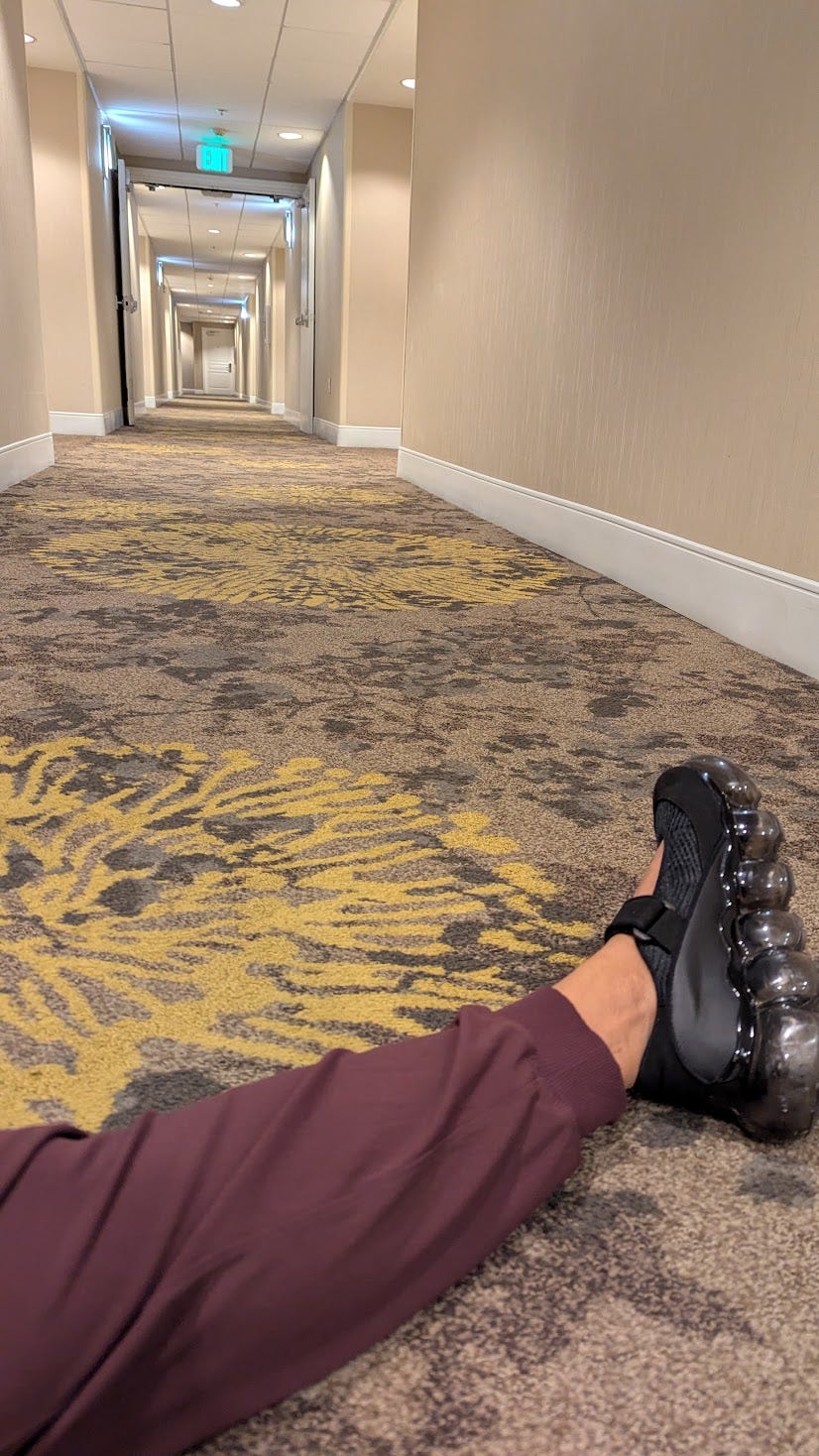
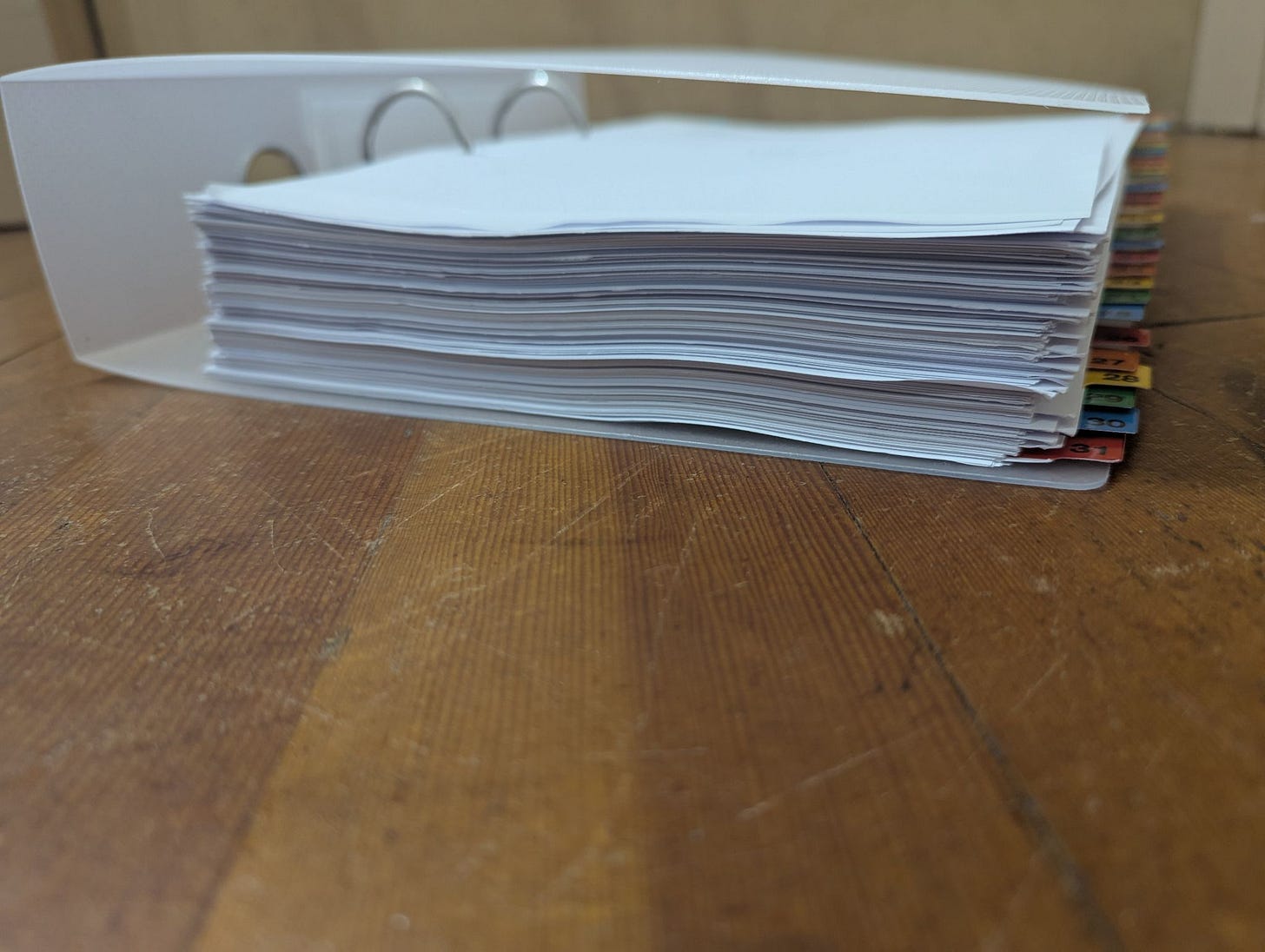
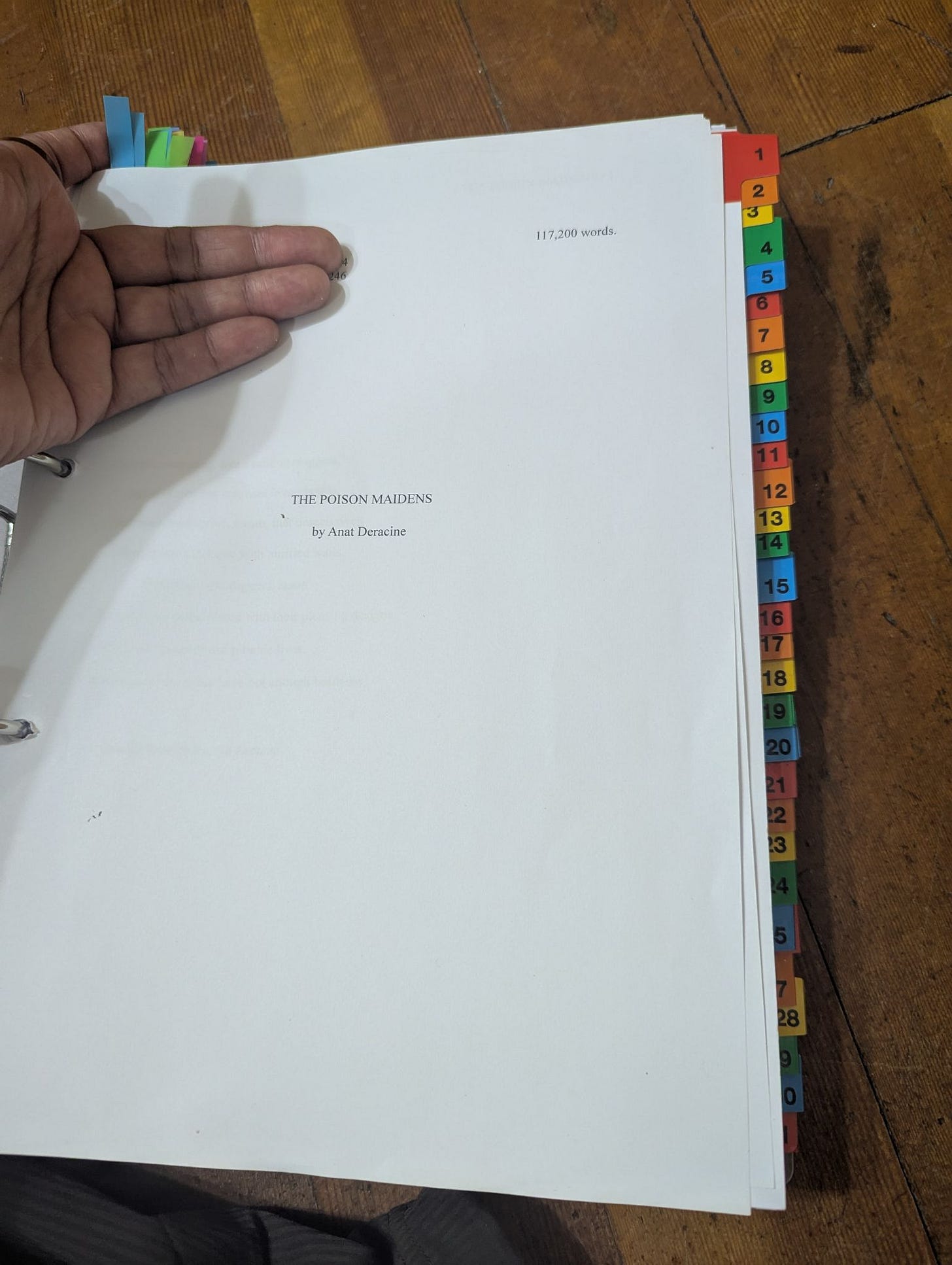
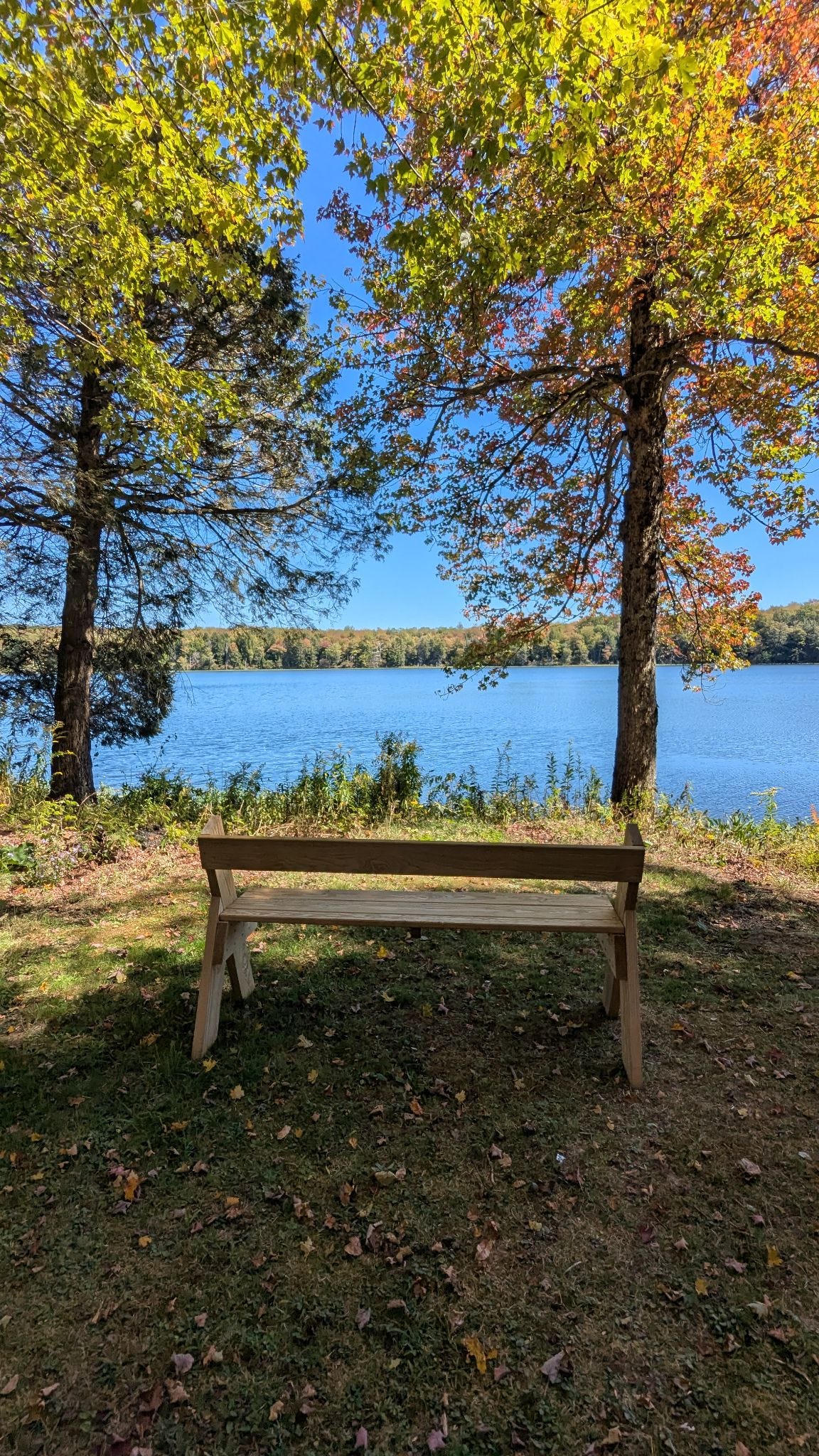
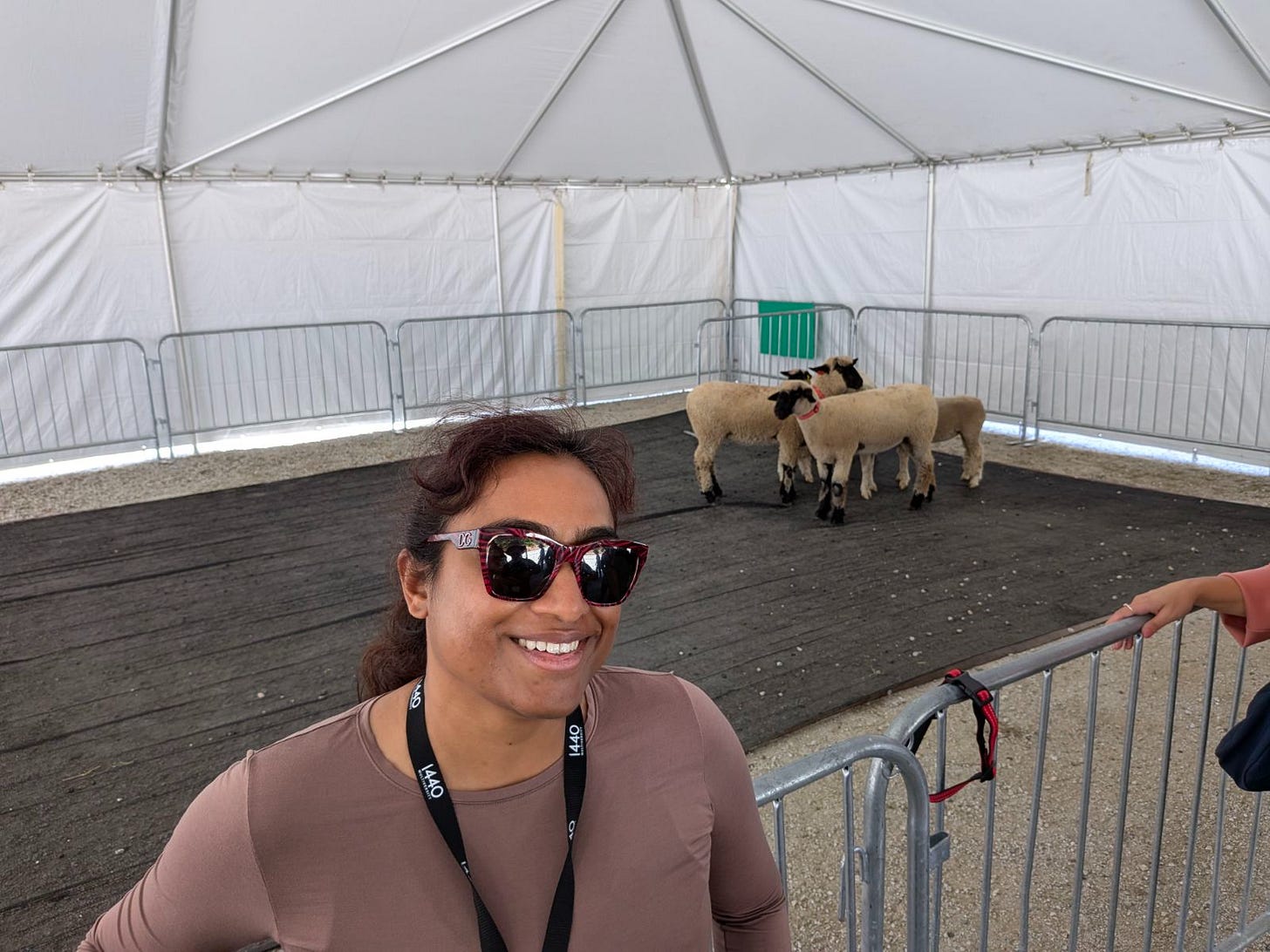
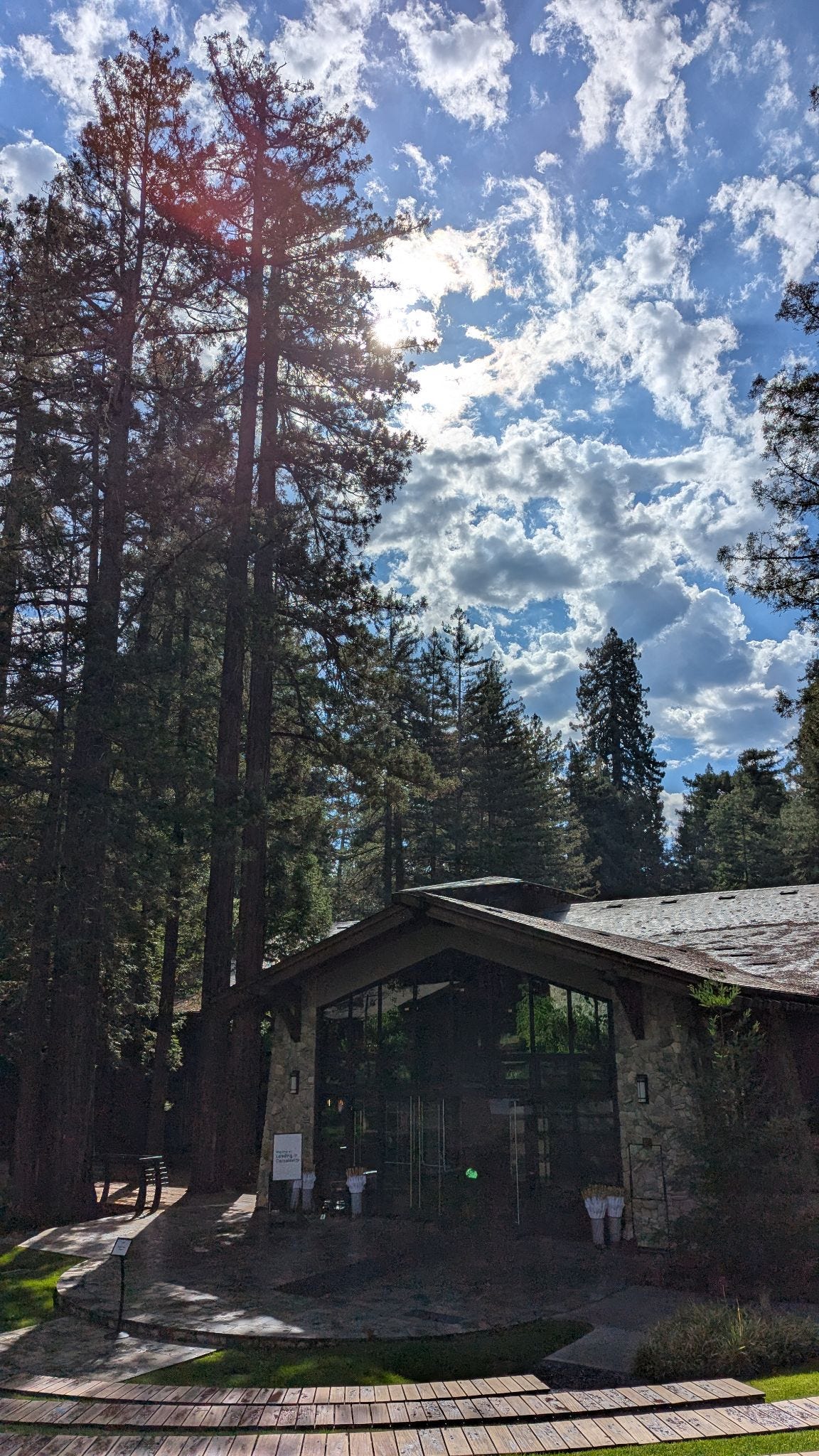
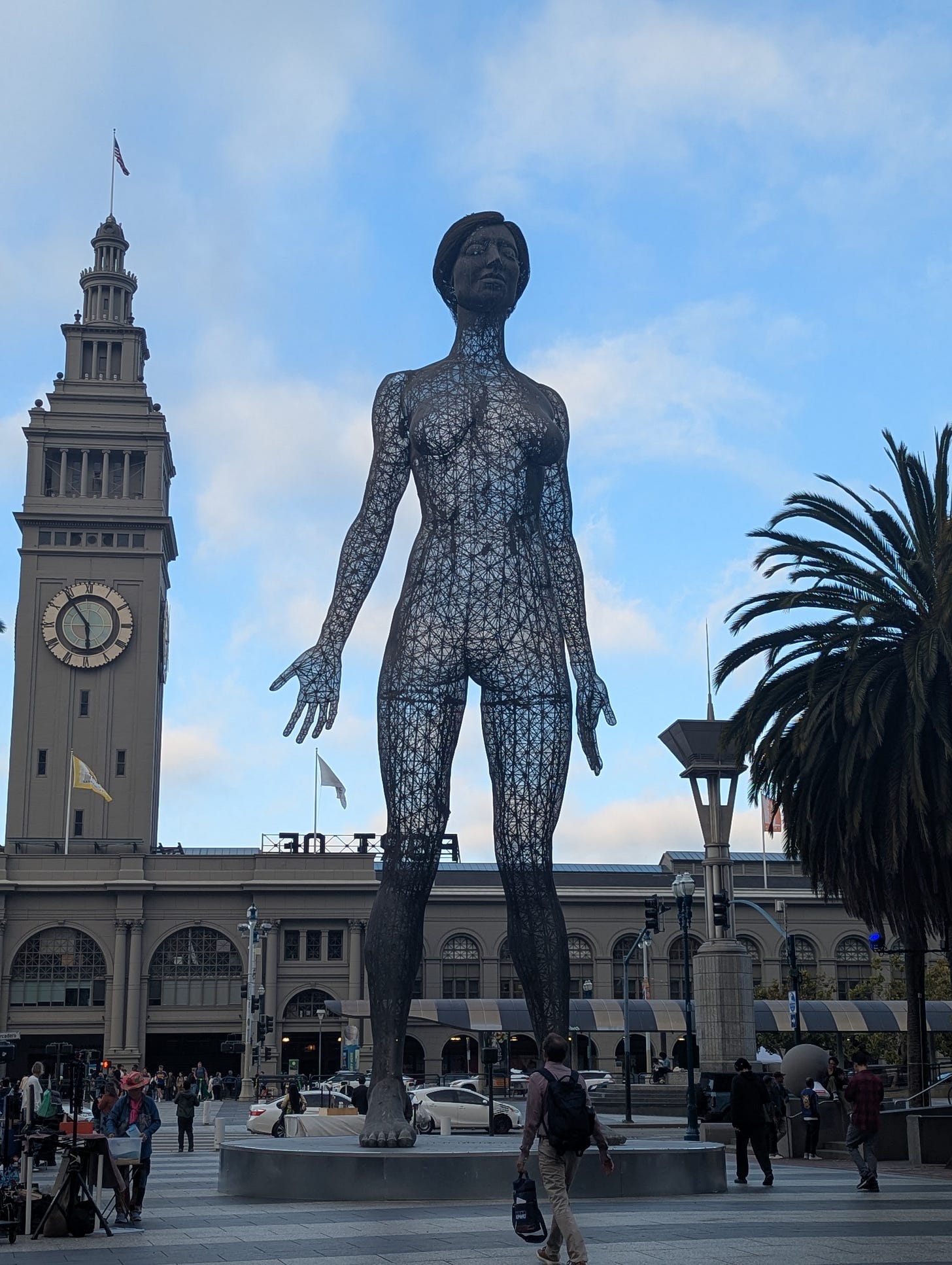
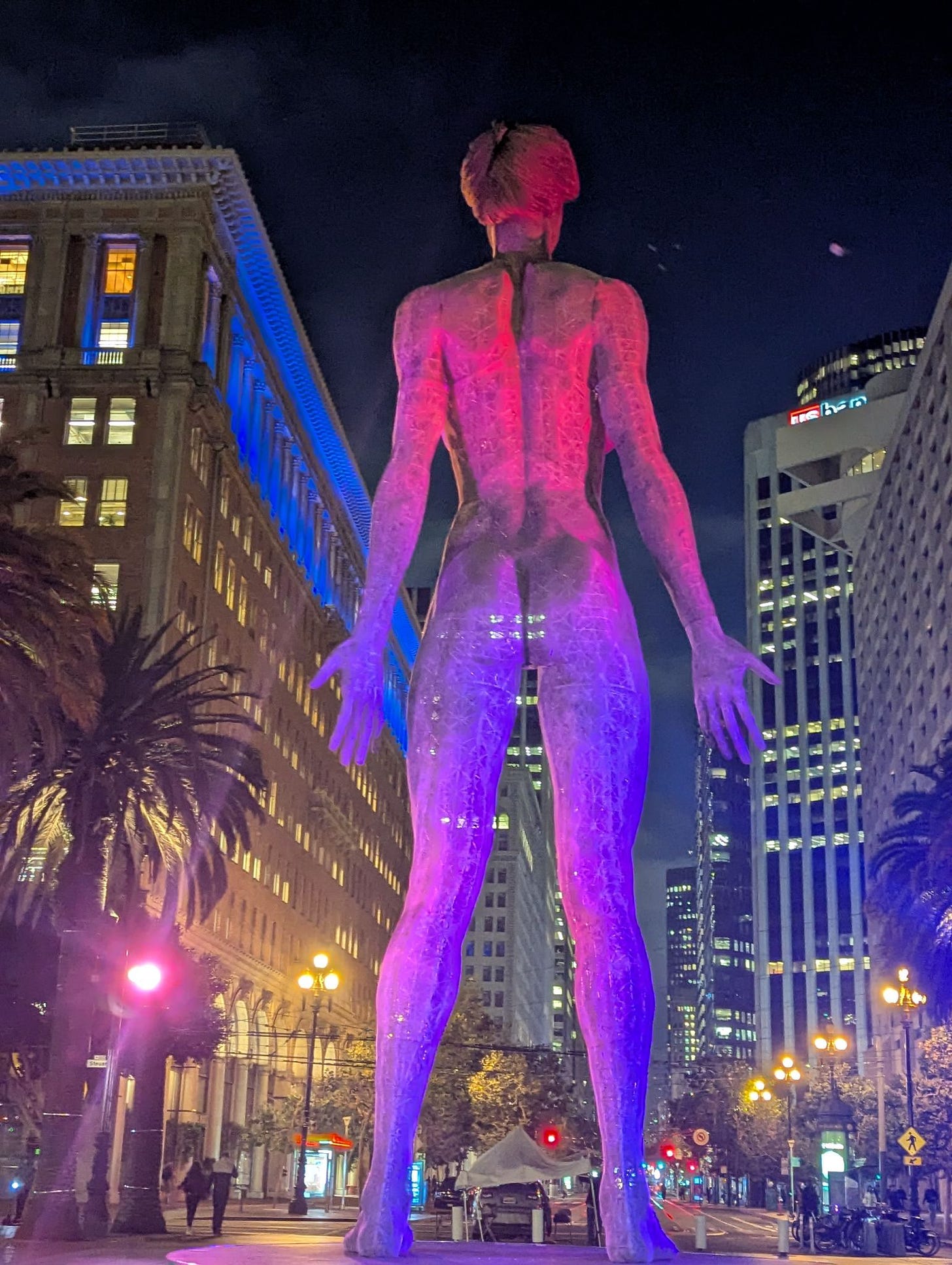
I love this! Thank you for writing it! But wait … you were here in Pennsylvania??!!??